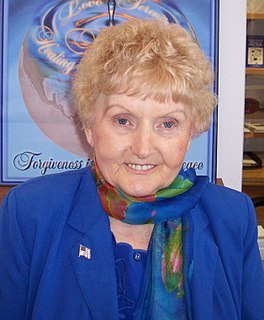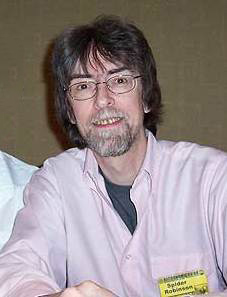A Quote by Ron Rash
She realized that being starved for words was the same as being starved for food, because both left a hollow place inside you, a place you needed filled to make it through another day. Rachel remembered how growing up she’d thought living on a farm with just a father was as lonely as you could be. (130)
Related Quotes
We ran up to them and they gave us hugs, cookies and chocolate. Being so alone, a hug meant more than anybody could imagine because that replaced the human warmth that we were starving for. We were not only starved for food, but we were starved for human kindness. And the Soviet Army did provide some of that.
I live in the same house I’ve lived in for 25 years. I haven’t gone off and bought mansions, you know, even though my subject is living… living in a mansion wouldn’t do for my readers. I have to keep my credibility alive with my readers, so we’re in the same place. I just make that place nicer and nicer. And… and that’s a secret. And people don’t know that. People think, oh, she lives in this fabulous place, it’s the same old place. It started out like a farm, it got to be a farmette, then it got to be an estatelet. I built a wall, it helped a lot. But it’s the same place, the same grounded nature.
I don't hate it here," she said automatically. Surprising herself, she realized that as much as she'd been trying to convince herself otherwise, she was telling the truth. "It's just that I don't belong here." He gave her a meloncholy smile. "If it's any consolation, when I was growing up, I didn't feel like I belonged here, either. I dreamed about going to New York. But it's strange, because when I finally escaped this place, I ended up missing it more than I thought I would. There's something about the ocean that just calls to me.
Day and night she had drudged and struggled and thrown her soul into her work, and there was not much of her left over for anything else. Being human, she suffered from this lack and did what she could to make up for it. If she passed the evening bent over a table in the library and later declared that she had spent that time playing cards, it was as though she had managed to do both those things. Through the lies, she lived vicariously. The lies doubled the little of her existence that was left over from work and augmented the little rag end of her personal life.
I was initially just fascinated by the Branch Davidians. This doesn't really apply to Rachel Koresh because she was born into the church, and that was all she had ever known, but I was fascinated by the psychology of how people get to that place - a place like Mount Carmel and an FBI stand-off for 51 days.
She was the murderous mother who cut us to the bone but left us alive, left us naked and bewildered as wrinkled newborn babies, as blind puppies, as sun-starved newly hatched baby snakes. She left us a dark Gulf and salt-burned land. She left us to learn to crawl. She left us to salvage. Katrina is the mother we will remember until the next mother with large, merciless hands, committed to blood, comes.
When he held her that way, she felt so happy that it disturbed her. After he left, it would take her hours to fall asleep, and then when she woke up she would feel another onrush of agitated happiness, which was a lot like panic. She wished she could grab the happiness and mash it into a ball and hoard it and gloat over it, but she couldn't. It just ran around all over the place, disrupting everything.
...you could not measure love on a scale of degrees, and now she understood that it was the same with pain. Pain might escalate upward and, just when you thought you'd reach your limit, begin to spread sideways, and spill out, and touch other people, and mix with their pain. And grow larger, but somehow less oppressive. She had thought herself trapped in a place outside the ordinary feeling lives of people; she had not noticed how many other people were trapped in that place with her.





































